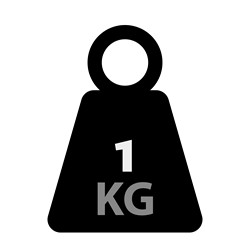A reformed metric system for enhanced measurement standards
Under the reform, the International Prototype of the Kilogram (IPK) – a platinum-iridium cylinder kept in a vault near Paris – will by definition no longer have the mass of 1 kg. The IPK's mass will instead be determined by reference to the Planck constant. The kilogram, ampere, mole and Kelvin will be redefined by fixing the numerical values of four fundamental constants of nature: the Planck constant, the elementary electric charge, the Avogadro constant and the Boltzmann constant, respectively. The project PRESUME (Economies of uncertainty: Epistemological perspectives on the reform of the metric system) has advanced a better understanding of the epistemological foundations of metrology. The first of three main objectives was to develop a general conceptual framework for related epistemological study. The second was to use this framework to analyse the epistemic and social impacts of the planned metric reform. Third, the project targeted increased visibility and comprehension of the goals and contemporary importance of metrology among scientists, humanities scholars and the general public. Project partners realised these objectives through philosophical analysis, empirical work and dissemination activities. For analysis, they developed a novel approach for studying metrological knowledge based on an economic analogy. The approach positions metrologists as providers of epistemic services, agents that relieve the need for other agents to obtain certain knowledge so as to achieve a desired goal. For example, when metrologists calibrate measuring instruments, instrument users do not need to know the particularities of these instruments to obtain reliable results. Empirical work involved interviews with metrologists at the BIPM, the National Physical Laboratories (NPL) near London and the Physikalisch-Technische Bundesanstalt (PTB) in Berlin. PRESUME used the philosophical framework to analyse data from the interviews along with current literature relevant to the topic. Research results indicate a central goal of the reform is to optimise the distribution of uncertainties among measurement outcomes reported under the metric system. The results enhance understanding of the importance, implications and historical context of the planned reform. PRESUME organised the international conference 'The Making of Measurement', the workshop on 'Informal Aspects of Uncertainty Evaluation', and a public talk titled 'How Heavy is the Kilogram?' Other activities included conference and seminar presentations, publications in The Stanford Encyclopaedia of Philosophy and The British Journal for the Philosophy of Science, and a forthcoming special issue of Studies in History and Philosophy of Science. Metrology has a major impact on science, commerce, industry and daily life. Project work has made important contributions to the field and in support of metrologists, key actors in the standardisation of physical measurement in accordance with the metric system.







